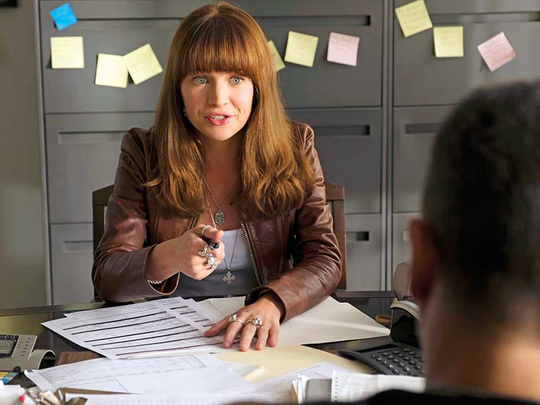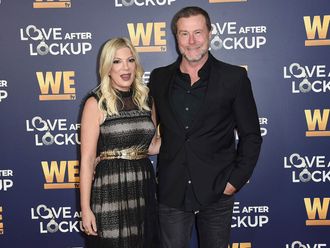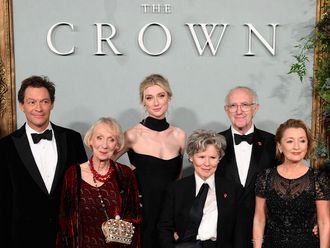
In this auteurist era of television, the likability question has become a litmus test for enlightened viewing. Wanting protagonists to be likable signals a lack of sophistication. Making protagonists “difficult” is a sign of authenticity.
I’m fine with that, as far as it goes. But Sophia Amoruso, the heroine of the new Netflix series Girlboss, demonstrates that the question isn’t that simple.
The show, whose 13 episodes are currently available, is based on the memoir #GIRLBOSS by the real-life Sophia Amoruso, a digital entrepreneur who founded the fashion e-commerce site Nasty Gal. The show was created and partly written by Kay Cannon, screenwriter of the Pitch Perfect movies.
The fictional Sophia — each episode begins with a note that the show is a “real loose” version of Amoruso’s story — is at the far end of the TV scale of difficulty. And she’s all the more realistic for that. If you don’t know a woman whom you love despite her characteristic anger, obsessiveness, insensitivity and refusal to listen to others, you may dismiss Sophia as a caricature. If you do, one moment after another in Girlboss will ring surprisingly true.
But truth doesn’t necessarily equal drama, or in this case half-hour inspirational dramedy. It’s fine that the Sophia of Girlboss isn’t likable. The problem is that she isn’t particularly interesting.
It’s a big problem, because for the show to work, we need to see what the other characters — like Sophia’s best friend, Annie (Ellie Reed), and her maybe-boyfriend, Shane (Johnny Simmons) — see in her. Neither Cannon nor Britt Robertson, who plays Sophia, is able to make it apparent.
Cannon’s strategy appears to be to foreground Sophia’s vulnerability and self-hatred — after episodes of boorishness or violent anger, she’s liable to loudly ask herself why she’s such a jerk. It’s another realistic touch, but it doesn’t make us care any more about her. Robertson convincingly portrays Sophia’s defensiveness and irritating energy, but there’s a pinched, limited quality to her performance. Sophia needs charisma, and Robertson hasn’t found it.
The bigger issue may be the disconnect between the part of Girlboss that wants to be a character study and the part that needs to be a conventionally entertaining series. The roots of Sophia’s personality are addressed briefly, in vague and heavily cliched terms (blame the parents). Otherwise her thorniness sits uncomfortably inside a stylised comedy that’s equal parts oddball and striving for the outrageous.
(The tech-business side of the story, in which a series of epiphanies takes Sophia from unemployed boho to eBay seller to e-commerce mogul, feels about as savvy as the copy of Starting an eBay Business for Dummies that Sophia shoplifts.)
As she demonstrated in Pitch Perfect, Cannon can write a funny line and sketch in an appealing character, and a number of performers benefit from this in small, spiky roles: Jim Rash as a vintage-clothing store owner, Norm MacDonald as a security guard, Melanie Lynskey as an eBay rival, Louise Fletcher as a curmudgeonly neighbour. They’re all likable, and there’s nothing wrong with that.
*Girlboss is now streaming on Netflix.













